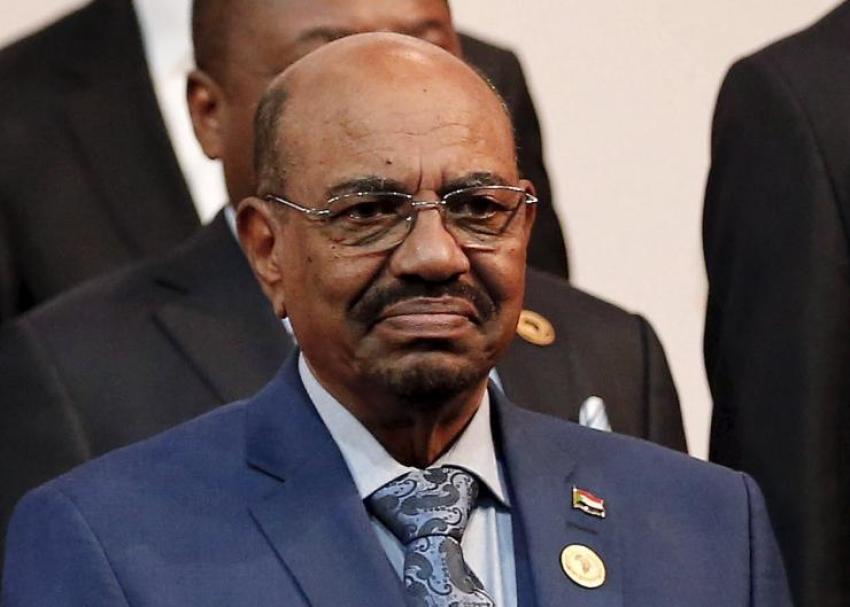Sudan to hand over ex-president responsible for Darfur genocide, war crimes

The transitional government in Sudan has agreed to turn over former President Omar al-Bashir and two other ex-government officials responsible for the genocide in Darfur to face prosecution at the International Criminal Court in the Netherlands.
The Associated Press reports that a member of Sudan’s sovereign council announced Tuesday that transitional authorities and rebel groups from Darfur have agreed that those charged by the ICC for atrocities in Darfur should be prosecuted.
The ICC opened an investigation into the abuses committed by the Sudanese government in 2005. Bashir's government was accused of genocide, war crimes, and crimes against humanity committed in Darfur beginning in 2002. It’s been estimated that over as 300,000 people have been killed in Darfur.
The ICC investigation has produced several cases with suspects that range from government officials and militia leaders.
Bashir, who is now 76, became the first sitting president to be wanted by the ICC and the first person to be charged by the ICC for genocide. However, neither of the two warrants for his arrest were enforced.
Bashir, who led the East African nation from 1989 to 2019, faces three counts of genocide, five counts of crimes against humanity and two counts of war crimes.
According to Human Rights Watch, the counts against Bashir relate to allegations of murder, extermination, and attacks on civilian populations in Darfur committed between 2003 and 2008.
In 2011, Bashir accepted responsibility for the genocide in a media interview but accused the ICC of having "double standards" and engaging in a "campaign of lies."
Despite warrants from the ICC, Bashir enjoyed the ability to travel overseas to friendly nations without much fear he could be arrested. In 2018, Bashir even traveled to Russia to watch the FIFA World Cup.
Bashir has been imprisoned in Khartoum since his regime was ousted from power in April 2019 following months of protests. In December, Bashir was sentenced to two years in a correctional facility after being found guilty of corruption and possession of foreign currency.
Sudan is now under the rule of an 11-member sovereign council and is no longer under the power of a military council that emerged in the wake of Bashir’s ousting. The council will hold power for about three years until the next presidential election takes place.
Sovereign council member Mohamed Hassan al-Taishi told reporters that justice can only be achieved if the wounds of the nation are allowed to heal.
He said that during peace negotiations to end Sudan’s civil wars, parties agreed that turning over suspects to the ICC would be among four mechanisms for transitional justice in Darfur.
“We agreed that everyone who had arrest warrants issued against them will appear before the ICC,” Taishi said, not mentioning Bashir by name. “I’m saying it very clearly.”
Al-Taishi did not explain when Bashir and others who are wanted by the ICC would be handed over. There are still outstanding ICC warrants for four others accused of war crimes and crimes against humanity in Darfur.
Those include the former state minister for humanitarian affairs Ahmed Haroun, former defense minister Mohammed Hussein, former militia leader Ali Kosheib and leader of the Justice and Equality Movement Abdallah Banda Abakaer.
According to HRW, research shows that the highest levels of Sudanese leadership were responsible for coordinating the government’s counterinsurgency policy in Darfur to systematically attack civilians.
Prime Minister Abdalla Hamdok confirmed the government’s commitment to cooperate with the ICC during meetings with the ICC’s Africa director on Feb. 12, according to HRW.
General Abel Fattah al-Burhan, chair of the Sovereign Council, told HRW that the sovereign council agreed that “no one is above the law.
“[P]eople will be brought to justice, be it in Sudan or outside Sudan with the help of the ICC,” Burhan said. “[O]ur colleague announced yesterday … we will cooperate fully with the ICC.”
The reported agreement to hand over those responsible for Darfur atrocities comes as transitional authorities had earlier pushed to try Bashir in Sudanese courts rather than handing him over to the ICC.
The civil war between the northern and southern regions of Sudan lasted for over a decade. The north is primarily comprised of ethnically-Arab Muslims while the south is predominantly comprised of Christians and other religious groups.
According to the Holocaust Museum Houston, Bashir's government in Khartoum wanted to create a more Islamic-based government. However, those efforts were opposed by groups in the south. Under Bashir, Sudan became notorious for funding terrorism and undermining religious freedom through the arrests of pastors and closure of churches.
Although Darfur is a predominantly Muslim area, there were tribal and ethnic differences that were exploited by the government as ethnic Arab militia groups were armed to carry out ground attacks while the military bombarded from the sky.
Under Bashir, Sudan had for years been ranked as one of the worst countries in the world when it comes to Christian persecution by Open Doors USA, a watchdog group that operates in over 60 countries.
Until last December, Sudan was recognized by the U.S. State Department as a country of particular concern for engaging in egregious religious freedom violations.
Sudan was removed from the State Department list after Hamdok and others from the transitional government met with U.S. government officials and members of the U.S. Commission on International Religious Freedom to detail plans to improve religious freedom conditions in the country.
Sudan still ranks as the seventh worst country in the world for Christian persecution on Open Doors USA’s 2020 World Watch List. Sudan is still dealing with the prosecution of Christian leaders and attacks on churches.
Last month, three church properties were burned down by suspected jihadists in Sudan’s Blue Nile state.
Follow Samuel Smith on Twitter: @IamSamSmith
or Facebook: SamuelSmithCP



























